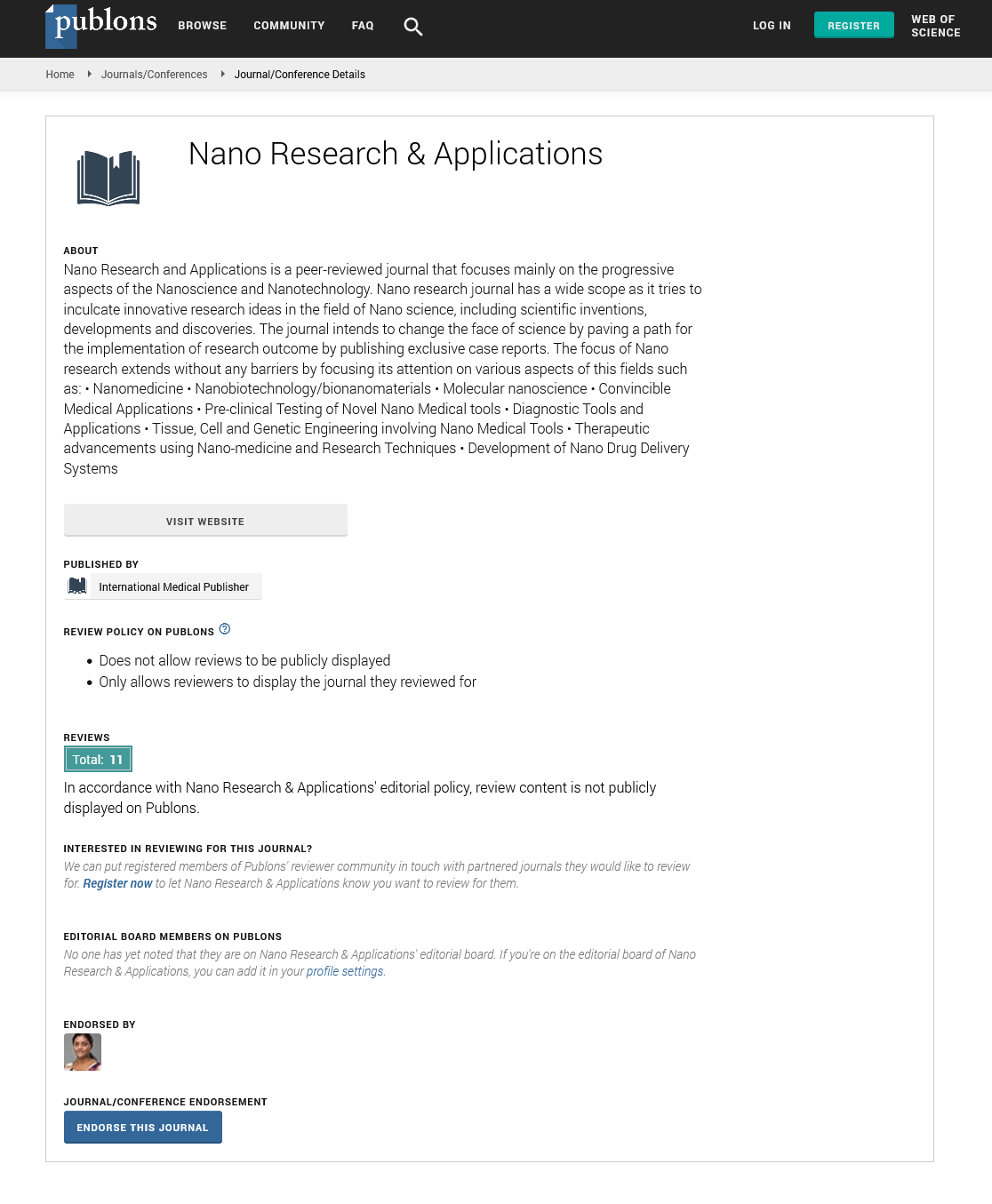ISSN : 2471-9838
Nano Research & Applications
Electronic water can reduce oxidative stress in cancer and diabetes patients for 3 weeks drinking
18th Edition of International Conference on Emerging Trends in Materials Science and Nanotechnology
January 28-29, 2019 Barcelona, Spain
Masahiro Onuma
Trisguide ltd., Japan
Posters & Accepted Abstracts: Nano Res Appl
DOI: 10.21767/2471-9838-C1-031
Abstract
Oxidative stress means a state of imbalance between the oxidizing action and the reducing action due to reactive oxygen species (ROS) in a living body, resulting in the oxidizing action becoming dominant. Oxidative stress arises as the balance between production and removal is disrupted through excessive production of ROS and impairment of the antioxidant system. Oxidative stress has been reported to be involved in the onset and progress of various diseases. Characteristics of type 2 diabetes are insulin secretion failure and insulin resistance, but it seems that oxidative stress is greatly involved in insulin secretion failure. In the insulin secretion-inducing β cells of Langerhans islets in the pancreas, the amount of superoxide dismutase (SOD), which is representative of the ROS elimination system, is small and resistance to oxidative stress is considered to be weak. Regarding cancer, it is well known that chronic inflammatory conditions increase the risk of carcinogenesis. Cells such as neutrophils and macrophages are activated in the inflammation area leading to an increase in the production of active oxygen and nitric oxide. These free radicals cause DNA mutation and cell proliferation thereby promoting cancer development. When chronic inflammation is present, cancer develops more easily. Electronic water, which was developed to generate electron in water, was consumed for three weeks, after meals, between meals and before sleeping 6 times a day, and according to the test subjects’ possible time periods. The amount of drinking water was 750-1000 mL, and biological antioxidant potential (BAP) and reactive oxygen metabolites derivative compounds (d-ROMs) checks for all cases were carried out at 4:30 pm. The results of cancer patients and diabetes patients were seen as attached. As a result, the d-ROMs value in the degree of oxidative stress has reduced, and the BAP value, which is an indicator of plasma antioxidant capacity, has improved significantly.
Biography
E-mail:
onuma@trisguide.com
Google Scholar citation report
Citations : 387
Nano Research & Applications received 387 citations as per Google Scholar report
Nano Research & Applications peer review process verified at publons
Abstracted/Indexed in
- Google Scholar
- China National Knowledge Infrastructure (CNKI)
- Directory of Research Journal Indexing (DRJI)
- WorldCat
- Publons
- Secret Search Engine Labs
- Euro Pub
Open Access Journals
- Aquaculture & Veterinary Science
- Chemistry & Chemical Sciences
- Clinical Sciences
- Engineering
- General Science
- Genetics & Molecular Biology
- Health Care & Nursing
- Immunology & Microbiology
- Materials Science
- Mathematics & Physics
- Medical Sciences
- Neurology & Psychiatry
- Oncology & Cancer Science
- Pharmaceutical Sciences
